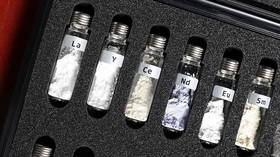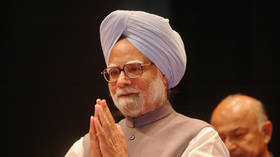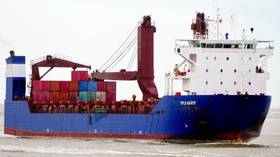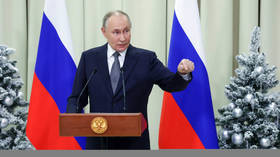Ending China’s rare-earths dominance a ‘pipe dream’ – official

China will continue to play a dominant role in the export of rare earths, Australian Resources Minister Madeleine King has told Bloomberg. She called the idea of ending Western nations’ reliance on Beijing for the critical minerals a “pipe dream.”
“That’s a country that has seen this need coming and made the most of it,” she told the agency on Tuesday.
According to King, however, this won’t stop Australia and the US from cooperating to boost investments into the minerals that are vital for the defense, aerospace, and automotive sectors in order to break Beijing’s monopoly on global supply chains.
The minister added that Canberra’s goal was to “make the most of the natural endowment we have of these resources, so that we can provide an alternative source of them from China.”
Rare-earth metals are a group of 17 chemical elements that are not actually rare but difficult to find in the necessary concentrations and hard to process because they often contain naturally occurring radioactive materials such as uranium and thorium.
The elements are widely used by manufacturers of products such as cell phones, automobiles, military equipment, and even dishwashers. Rare-earth metals are also extracted in India, South Africa, Canada, Estonia, Malaysia, and Brazil.
Rare earths have long been at the center of the US-China trade war, while Australia, which has some of the world’s largest reserves of these resources and is among the biggest producers of critical minerals globally, supports Washington in the spat. Meanwhile, the US, which used to be the world’s leading producer of the minerals is now heavily dependent on China, which accounts for nearly 80% of global rare-earth production and holds the largest reserves.
“Countries with critical mineral resources should play a positive role in protecting the safety and stability of relevant industrial supply chains,” Chinese Foreign Ministry spokesman Zhao Lijian said on Tuesday at a regular press briefing in Beijing. He urged against politicizing, instrumentalizing, or weaponizing the global economy.
For more stories on economy & finance visit RT's business section













